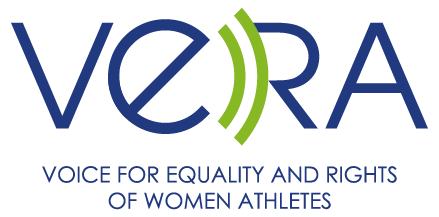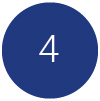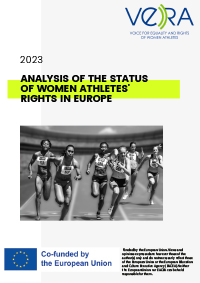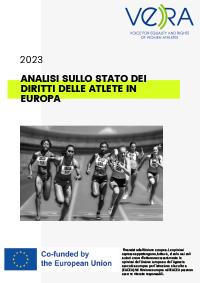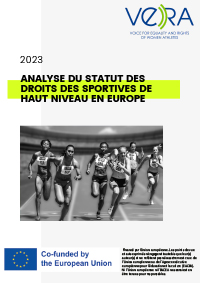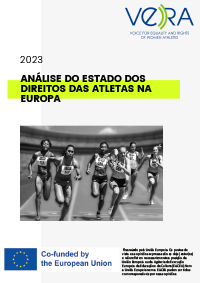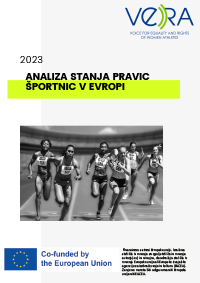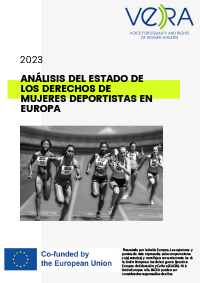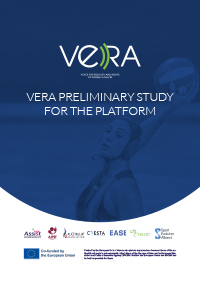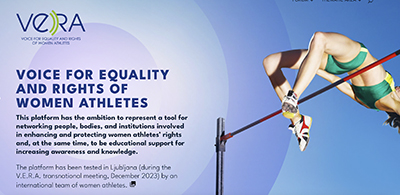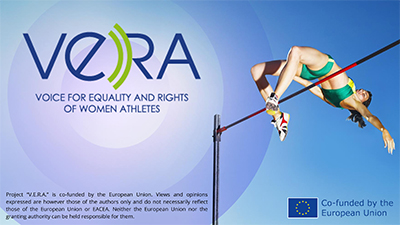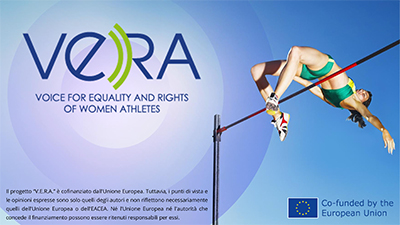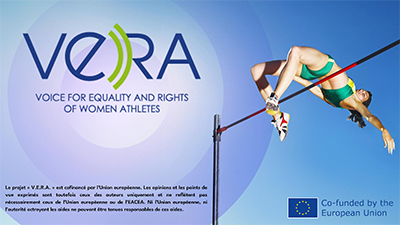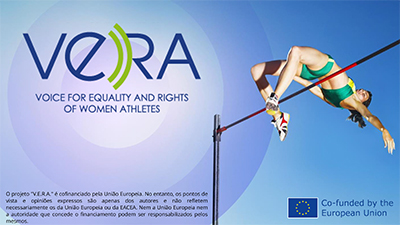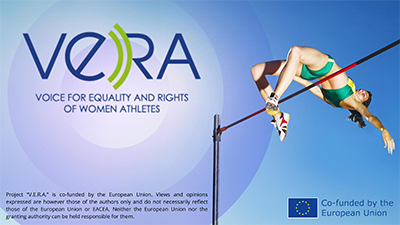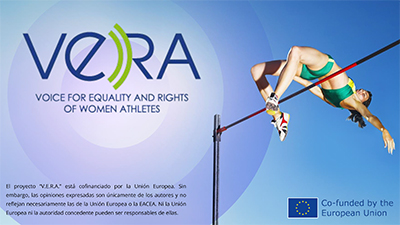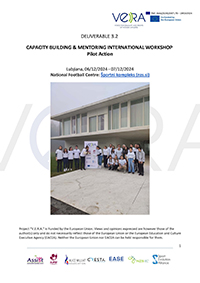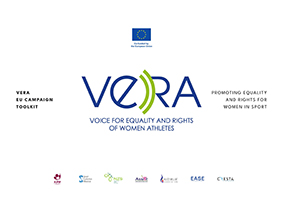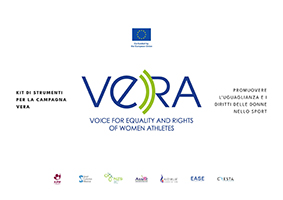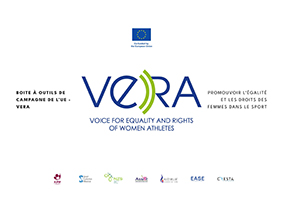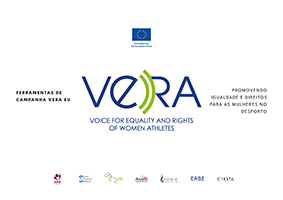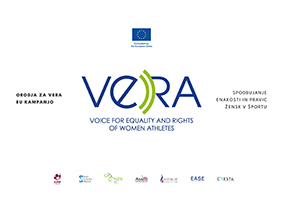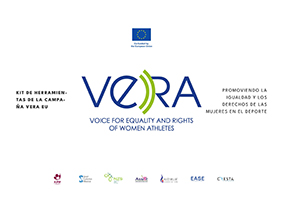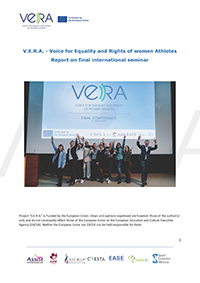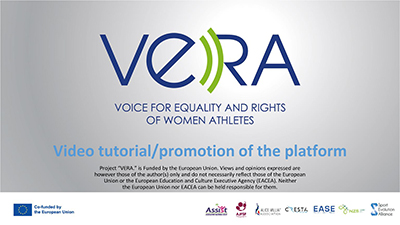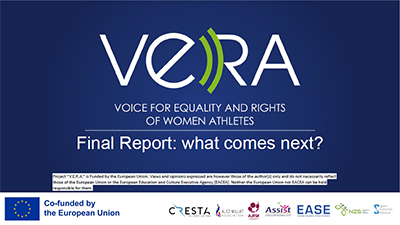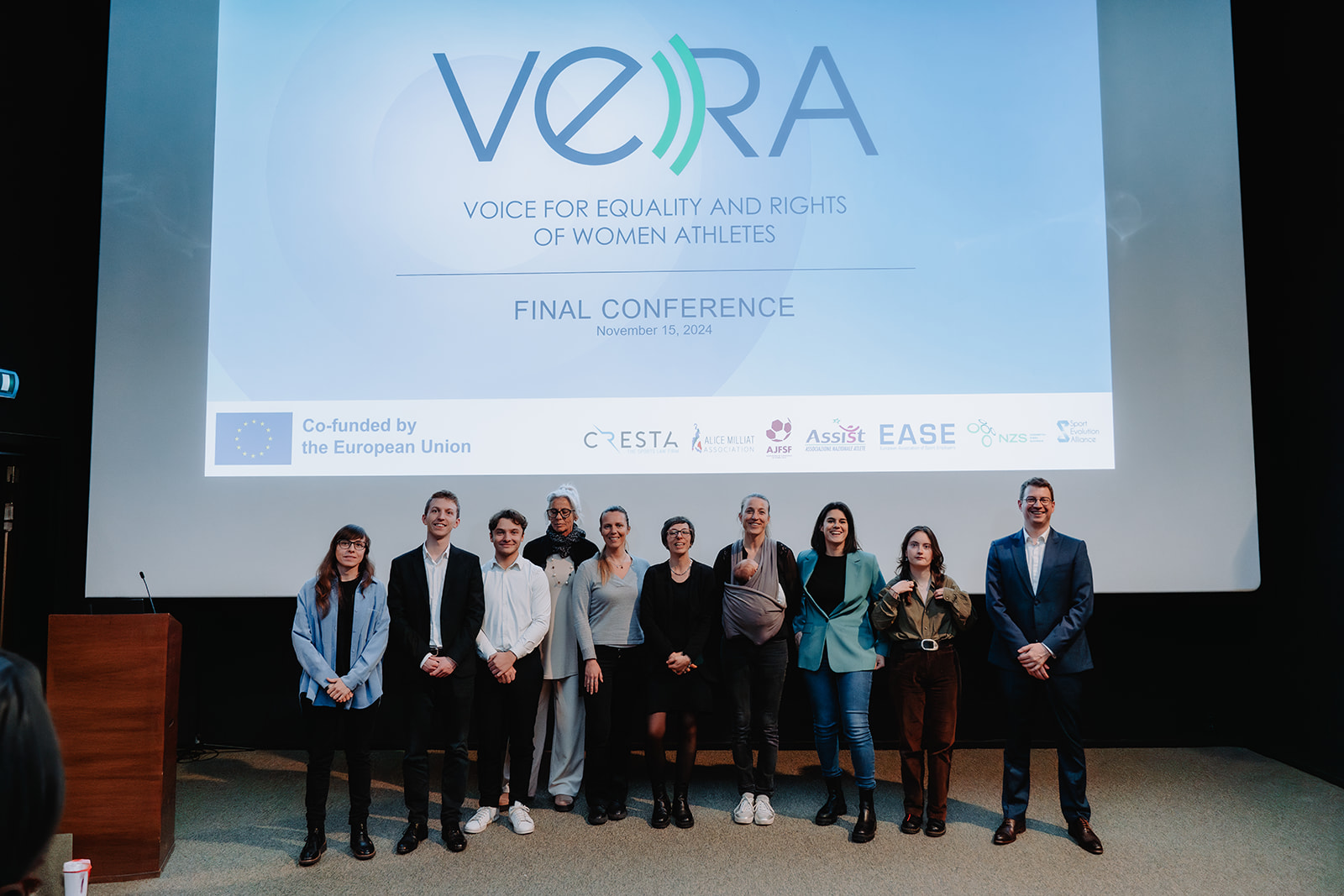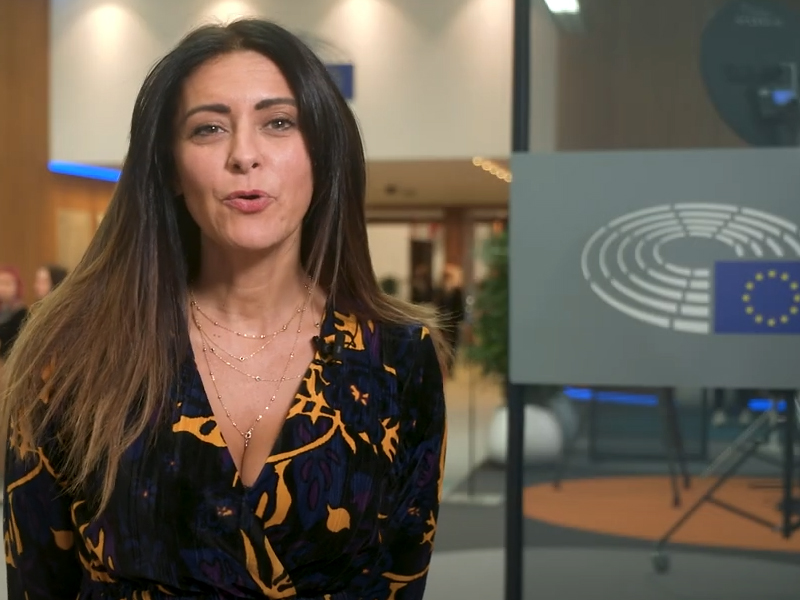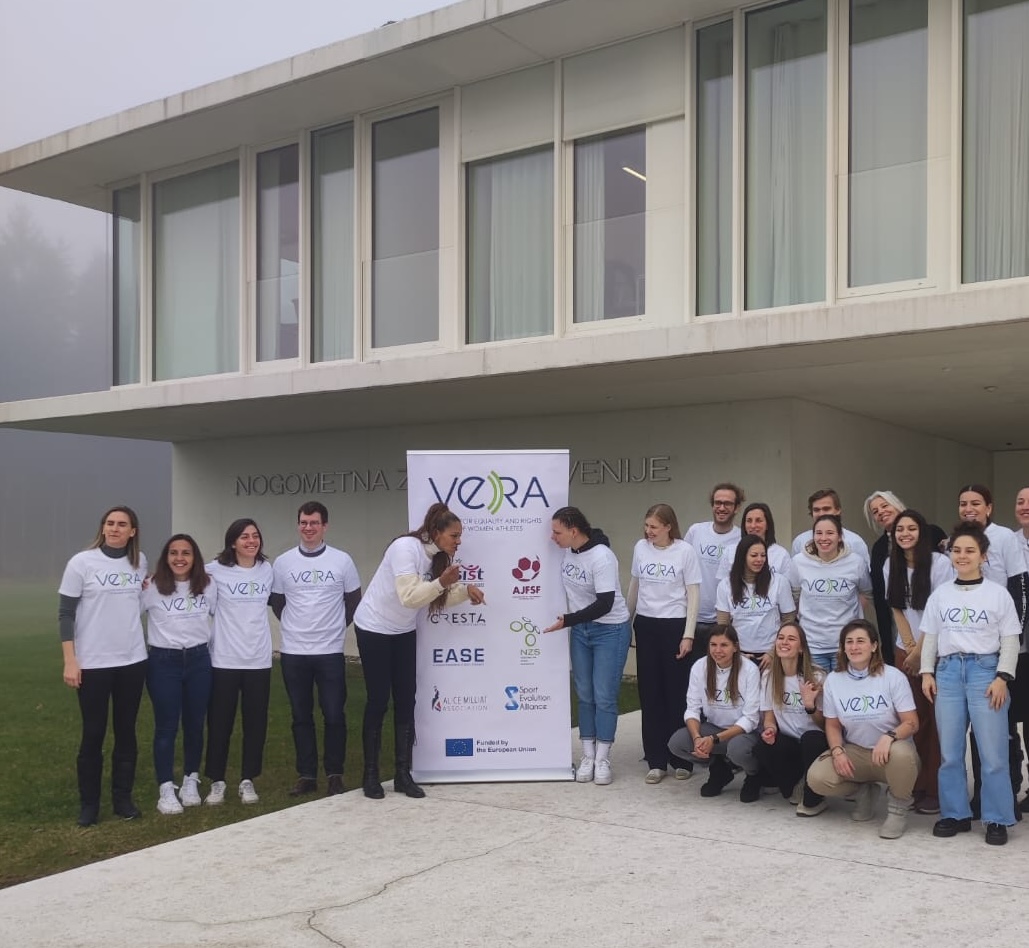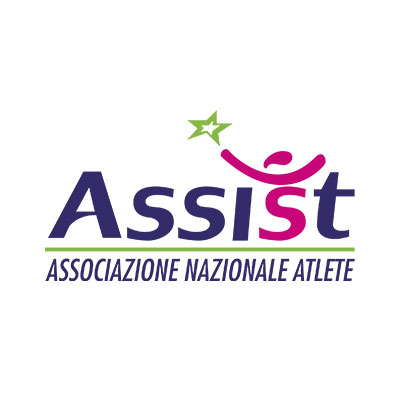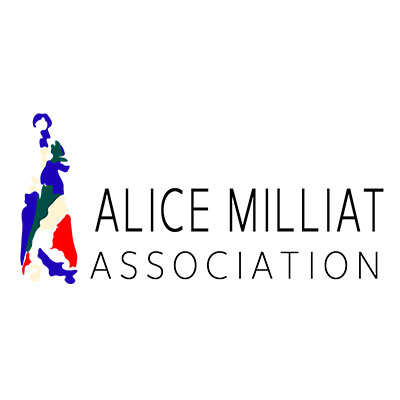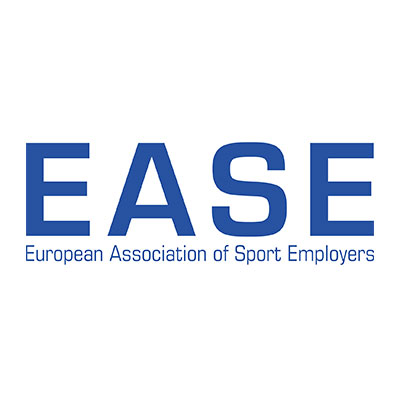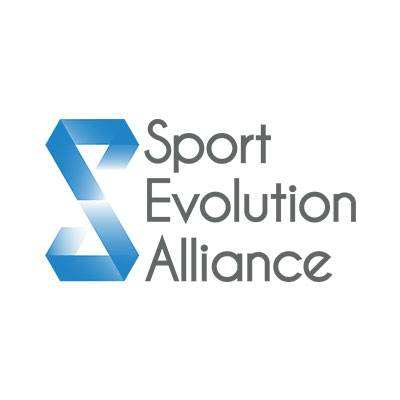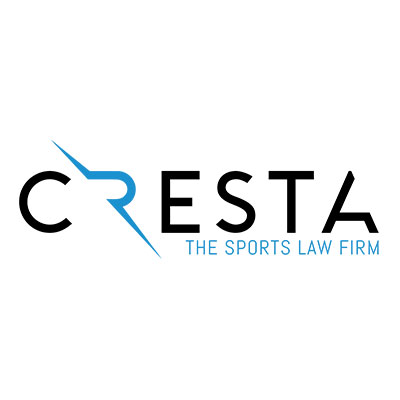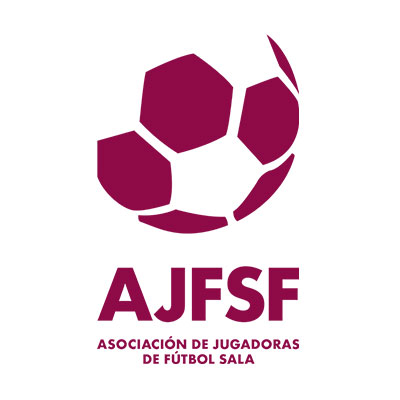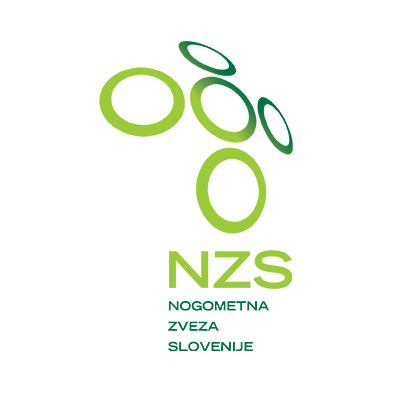V.E.R.A.
Voice for Equality and Rights of Women Athletes
The Project
V.E.R.A. project aims at increasing equal opportunities, inclusion, diversity and fairness in the European sports system by enhancing protection and equality of women athletes’ rights, empowering athletes themselves and organizations that represent them to work towards this objective and, therefore, towards a richer and more balanced sport system in Europe.
V.E.R.A. Project
Our main goal
Promote an international network of organizations working to protect, advance and promote women athletes’ rights improving the level of protection, respect and value for them in sport in Europe and, consequently, to build a fairer and more virtuous sporting world.
The project will target 4 objectives
01.
Improve
safeguards, support and representation for women athletes, boosting awareness on and protection of their fundamental rights in the profession, contributing to a full enjoyment and recognition of their sporting careers.
02.
Increase
awareness among the European sport systems and general sport audience on the benefits and the added value that gender equality and diversity can bring to sport and athletes through advocacy, information and networking.
03.
Create
an European platform for athletes, organizations and professionals to strengthen the opportunity to exchange best practices and possible solutions to common challenges, increase empowerment and cooperation.
04.
Promote
mentoring and mutual support between athletes and professionals of organizations that represent and support them, encouraging blended training and multi-professional cooperation.
Activities
Main outputs: What will we produce?
D7 – VIDEO TUTORIAL/PROMOTION OF THE PLATFORM
News
Contact Us
The personal data entered in this form will be processed for the sole purpose of responding to your request. The complete privacy policy is available here.

Project “V.E.R.A.” is Funded by the European Union. Views and opinions expressed are however those of the author(s) only and do not necessarily reflect those of the European Union or the European Education and Culture Executive Agency (EACEA). Neither the European Union nor EACEA can be held responsible for them.

